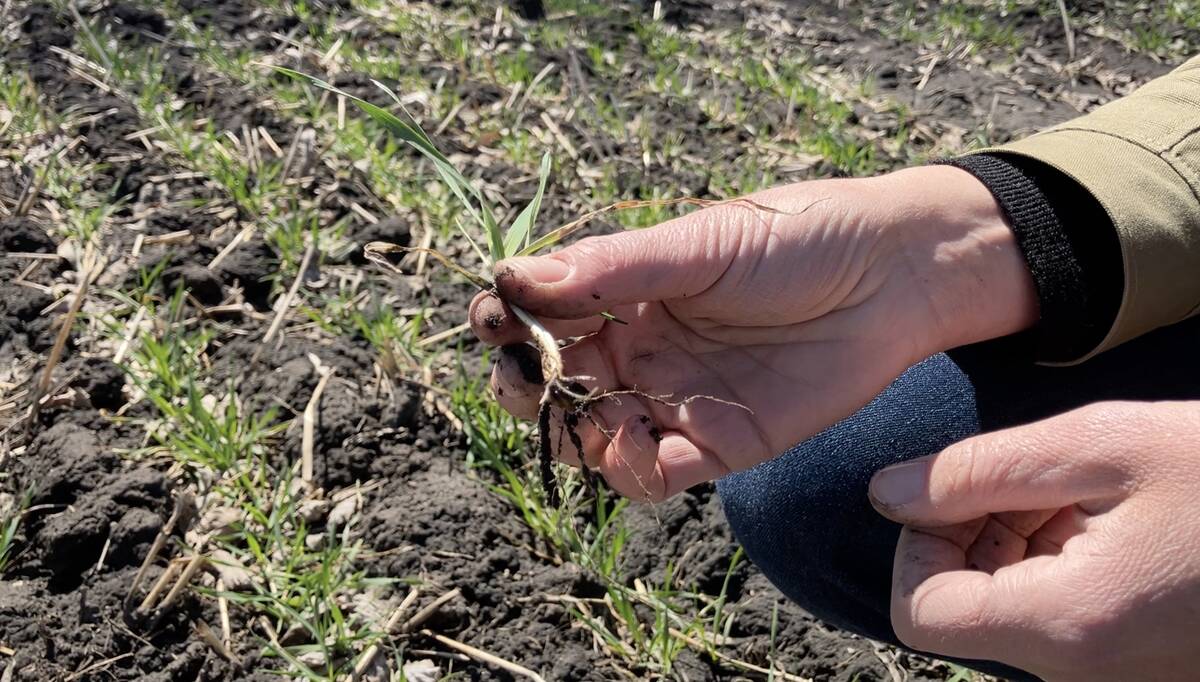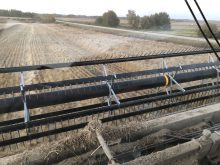There’s been a lot of noise generated around a trucker convoy to Ottawa protesting vaccine mandates for cross-border truckers.
As our Alexis Stockford reports in our Feb. 3 issue, some of the supporters included Manitoba farmers. And some of the province’s farm groups expressed some muted support for the goals, especially when framed as keeping trade flowing across the border.
With the second year of the pandemic just about to come to a close, the frustration is understandable. We’re all weary of masks, social distancing and lives put on hold.
Read Also

Canadian government got it wrong on public plant breeding
Cuts to Agriculture and AgriFood Canada will undermine Canadian agricultural productivity, says National Farmers’ Union member Dean Harder.
Whether a vaccine mandate makes any sense anymore is even a worthy topic of conversation. Originally, the mandate was designed to reduce transmission of COVID, but the Omicron variant has proven capable of infecting vaccinated as well as unvaccinated. However, vaccines have demonstrated they protect against serious illness.
But there are also a lot of real half-truths being told in the name of justifying this burst of anger.
Few of them are bigger than the claim that in Canada the mandate is causing a food insecurity issue. One Conservative MP went so far as to tweet a photo of empty grocery shelves… in the U.K. it turns out.
It’s true, there are, here and there, shortages popping up. But one constant that I’ve noticed myself when seeing photos of this is the fact that there’s almost inevitably full store shelves in the background.
What we are seeing right now is the impact of the Omicron variant, across the globe. It’s making people sick, even if it seems to be mostly in milder form, and they’re doing what sick people tend to do — stay home from work.
Any workforce can generally deal with a few sick days, but what we have here is a tsunami of illness that’s sweeping along at an unprecedented rate.
One back-of-the-envelope figuring I saw from an epidemiologist suggested that Omicron is, once the transmissibility rate and incubation period were taken into account, the fastest-spreading virus humankind has ever encountered.
That’s having a predictable effect of further straining what was already a clearly strained supply chain. And it’s popping up in predictable areas, like fresh fruit and vegetables, or livestock, that are labour intensive.
What’s surprising is just how much attention the convoy group has got when it’s clearly a very small minority in the trucking industry.
According to the police in Kingston, Ont., when the convoy passed through that community it numbered 17 full tractor-trailer combos,104 tractors without trailers, 426 passenger vehicles of various description, and six RVs. That jibes with numbers released by the OPP in Thunder Bay, who counted 113 semis and just over 200 vehicles of other descriptions a day or so earlier.
To be clear, we live in a democracy, and these citizens have the right to believe what they believe, and express those beliefs to those we elect to represent us and run our governments.
But to claim this group represents the roughly 300,000 commercial truckers working in Canada is a real stretch, when the most generous number represents just 0.04 per cent of the total.
There’s little doubt the transportation sector in Canada is having difficulties at the moment. And there’s also little doubt that’s it’s the pandemic that’s caused it.
What’s a lot less clear is whether the vaccine mandate for drivers has — at least yet — had any discernable impact.
If farmers and farm groups are truly concerned about the flow of goods, and their businesses, rather than expressing pandemic exhaustion and disdain for the government, there are other issues they could address.
There needs to be better and more accessible training for drivers. And there needs to be a better deal for the drivers who are out there, a deal that makes them want to stick with the industry and build a career.
The website smartertrucking.com, which plainly states they represent the interests of drivers, summed it up in a column in October 2021.
“There appears to be a shortage of qualified professional truck drivers because drivers are leaving the industry and searching for jobs that offer better pay, benefits and working conditions,” they wrote.
“They’re simply not happy or satisfied with the lifestyle driving a truck for a living provides. And who can fault them for this?”
Truck drivers have, at various points during the pandemic, and well before, complained of abusive company-run training programs, one-sided owner-operator deals and the terrible lease terms most drivers are offered. And that’s on top of the reality that most are on the road a minimum of 250 days a year.
Manitoba’s agriculture sector is clearly intertwined with its transport sector. So it’s in the best interest of farmers to ensure that the drivers are treated well enough that they want to go to work in the morning.
That’s the real crisis in trucking, not a lot of sound and fury over vaccines.















